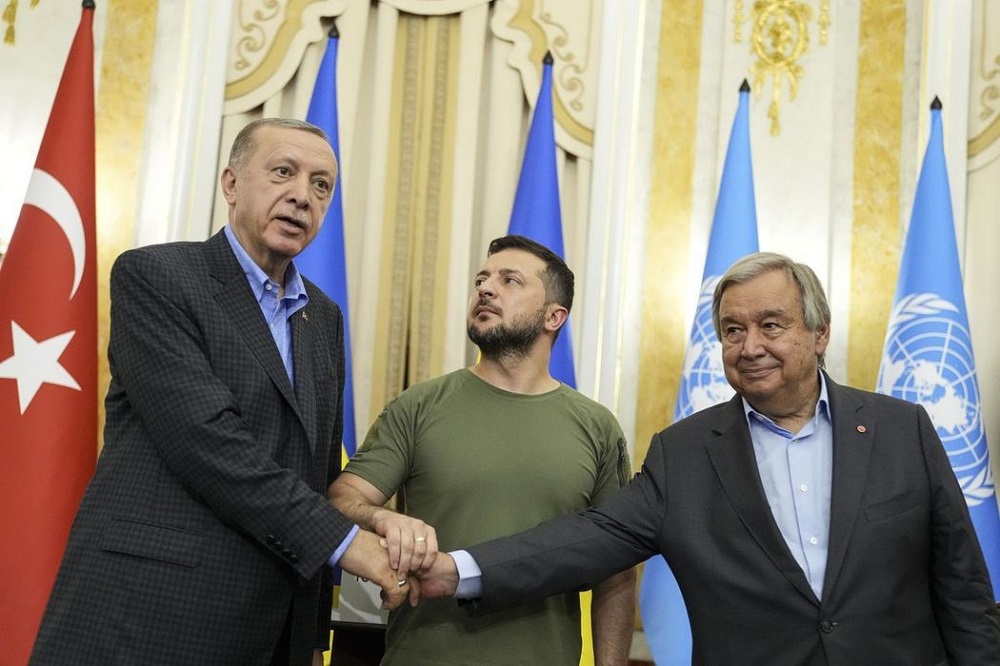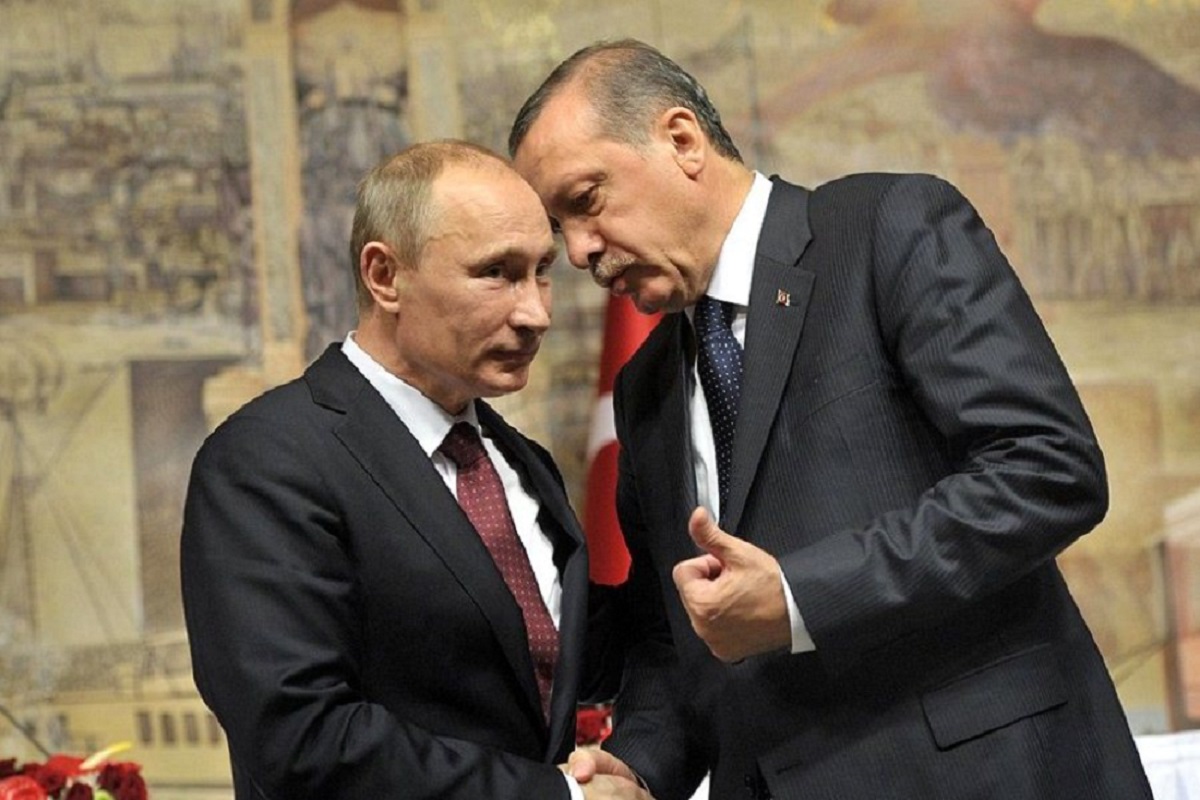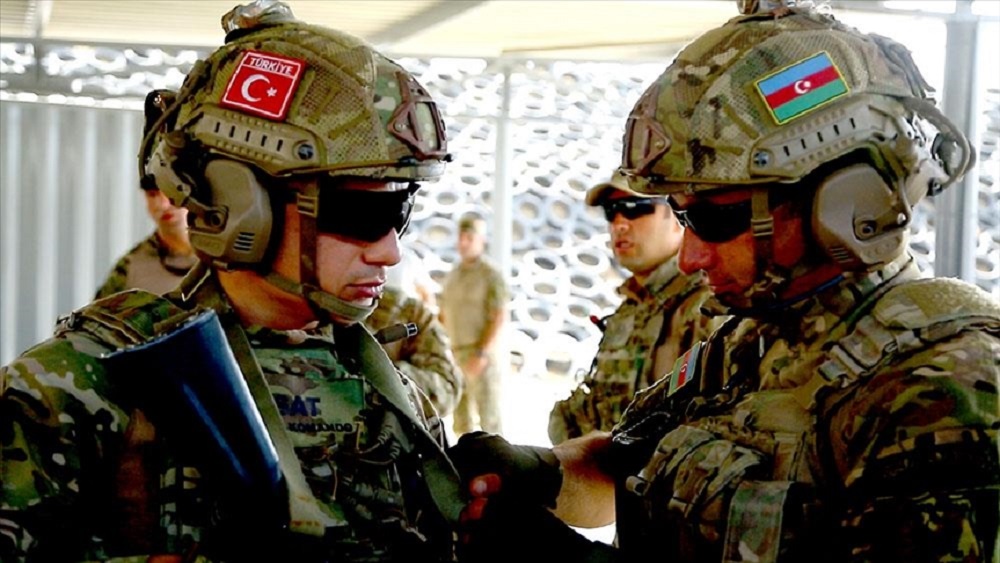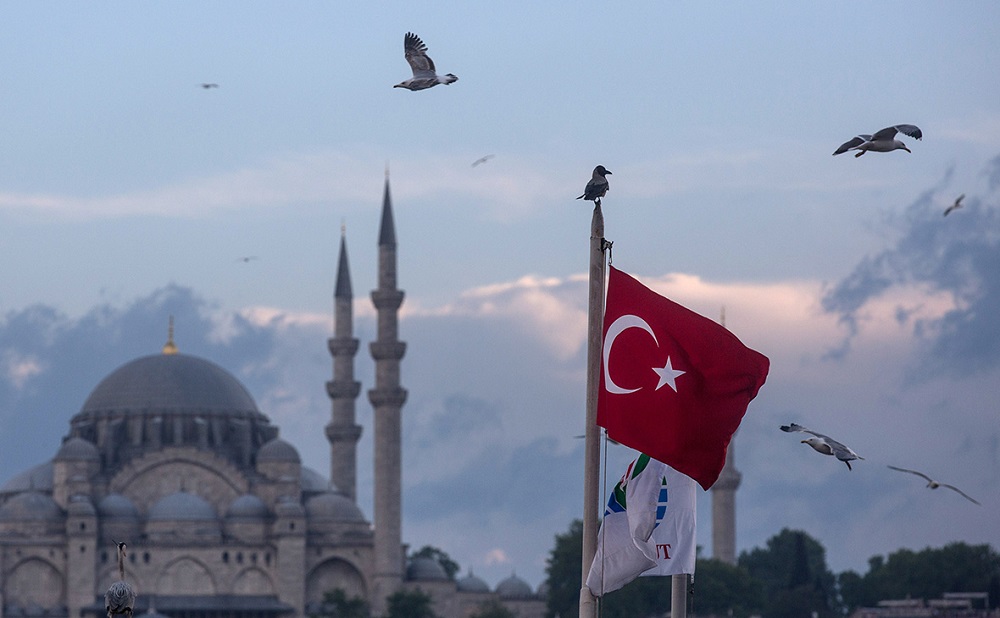What does Turkey want in Ukraine? View from Baku
What Turkey wants in Ukraine
From the very beginning of the Russian offensive in Ukraine, Ankara has taken upon itself the role of mediator between Moscow and Kyiv. Turkey has refused to join Western sanctions against Russia, while actively helping Ukraine in the war. Ankara also recognizes the territorial integrity of Ukraine. Azerbaijani political observer Agshin Karimov talked about the Turkish government’s strategy and what Turkey is trying to achieve in Ukraine.
- “The Georgian government should change its tone” – Advisor to President of Ukraine
- Op-ed: “Azerbaijan understands pros and cons of alliance with Turkey or Russia”
- The fate of Ukrainian refugees in Georgia after they fled the war-torn areas via Russia
Turkey’s position in Russia’s war on Ukraine has caused some controversy in the global analytical community.
Turkey has officially declared its support for the territorial integrity and sovereignty of Ukraine several times, supplying Kyiv with modern weapons and humanitarian aid.
Several meetings have been held between government representatives of the warring states with the direct mediation of Turkish President Recep Tayyip Erdogan. The latter has also initiated successful negotiations on the export of Ukrainian agricultural products to world markets with the participation of the UN.
At the same time, Turkey has not joined Western sanctions against Russia – it is rather seeking greater economic cooperation with it, and recently received a warning from the US Treasury Department that it does not accept assisting Moscow in bypassing sanctions.
JAMnews has explored what the Turkish government’s motives and objectives may be with the help of Azerbaijani political observer Agshin Karimov.
On Ankara’s strategy: What Turkey wants in Ukraine
According to Karimov, since the beginning of the war in Ukraine, Turkey has carefully maintained a balance in relations with the two countries, but has so far been unsuccessful in imposing its own model of peace between Moscow and Kyiv:
“The Turkish balancing act can be summed up as three factors:
- Prevent the defeat of Ukraine in the war;
- Show solidarity with the West, but avoid conflict with Russia;
- Increase Turkey’s military-political and geopolitical weight in the global theater.
Turkish President Recep Tayyip Erdogan’s visit to Lviv and meeting with his Ukrainian counterpart Volodymyr Zelensky were intended to sound out acceptance of Ankara’s peace plan, but Kyiv remains firm in its positions.

Karimov notes that a long war between Russia and Ukraine has the risk of metastasizing to other regions and thus increases the possibility of Turkey’s involvement. Thus, it is vital for Erdogan to achieve peace.
But the sharp contradictions between Moscow and Kyiv keep the Turkish model of peace in the region in a geopolitical “traffic jam”, and demand even more careful and thoughtful maneuvers from Ankara, Karimov maintains.
“Although NATO supports Ankara’s peace initiatives, the boundaries of this support are strictly limited, and the West puts obstacles Turkey’s way.
“Because Turkey is developing cooperation with Russia, and of course the West has a complex and tense relationship with Russia. In addition, Ankara is expanding its understanding of military-technical cooperation with Moscow.
“The United States and France hold the sharpest position towards Turkey in the West, and it is at the suggestion of these two countries that anti-Turkish sentiments are raging – as a result of which there are attempts to damage Ankara’s peacekeeping image in resolving the Russian-Ukrainian conflict.
“But it would be wrong to think that the West is entirely against Turkey, because there are threads that bring Western countries closer to this state with a very attractive geographical position in the world.
“One of Turkey’s unquestionable strengths is its role in the supply of natural gas to Europe via alternate routes. This applies to both the Southern Gas Corridor through which gas flows from Azerbaijan, and the Turkish Stream, which delivers Russian fuel to Europe.
“In any case, Turkey’s position is based on the criteria of territorial integrity and principles of respect for sovereignty, and so regardless of obstacles, the country turns its initiatives into a diplomatic asset.
“Turkey’s attempts to pursue a delicately balanced policy cannot be regarded as supporting Russian imperial interests. Ankara’s position is dictated by facts on the ground,” Agshin Karimov said.
All bases covered
According to Karimov, Erdogan’s support for Ukraine in various areas comes from his understanding that if Russia wins the war, Turkey’s Black Sea positions could be at risk:
“Turkey is simultaneously forced to play it safe in the event of a Russian victory.
“Therefore Turkey is trying not to weaken its relations with Russia, while at the same time providing decisive assistance to Ukraine. This is not a manifestation of sympathy for a particular country or its leader, but a defense of principles.
“Ankara will not change its tone in the near future and will continue its foreign policy in the spirit of delicate balance, trying to avoid choosing between Russia or the West. As long as there are no dynamics forcing Ankara to choose a different path, and even if there is one, Turkey will not back down.
“It may seem that Erdogan returned from Ukraine empty-handed, but he will not stop his peace initiatives.
“Turkey’s long-term goal is to prepare the country for the results of the war in Ukraine. And it seems the Erdogan government has various scenarios ready,” Karimov concluded.
What Turkey wants in Ukraine





















